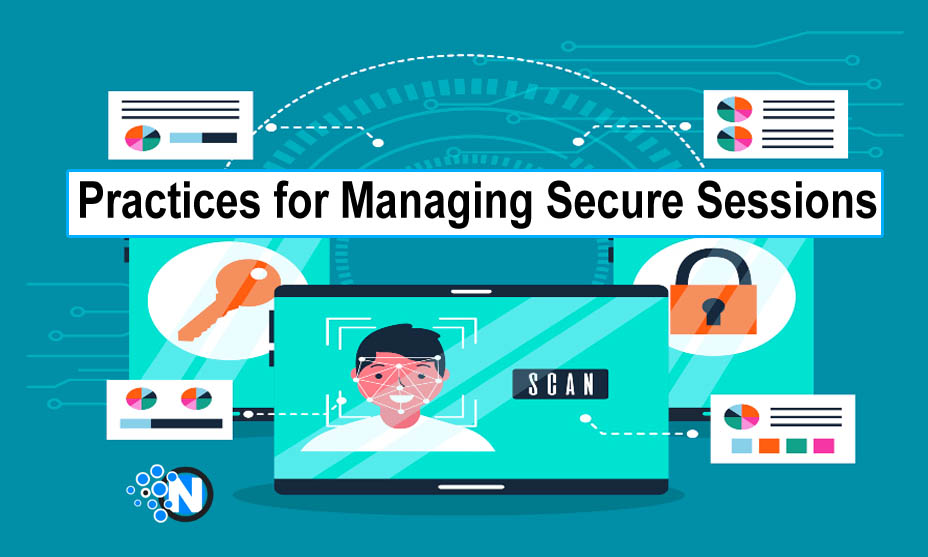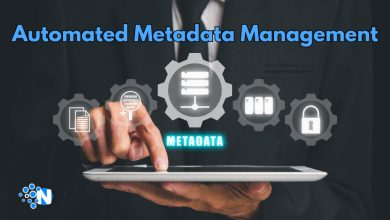Best Practices for Managing Secure Sessions

A secure session management system is super important in today’s world of web apps. A session can be conceptualized as a conversation with a website. Poor session management can lead to severe risks, like losing sensitive information or letting someone into your account without permission. It’s like leaving a diary open for someone to read. The consequences can be harmful. So, we’re here to help you figure out the best ways to secure your online sessions, just like you would lock your diary away in a safe spot.
Basics of the Session
Before getting into the best practices, let’s define what we mean by a “session.” It’s similar to your internet identity, to put it simply. A session is generated when you log in. Thanks to it, you can stay logged in without continually typing your credentials.
Common Session Management Vulnerabilities
Now, let’s discuss some typical issues that can arise during session management:
- Session Fixation: This is like having a secret password for your diary, and someone finds out what it is. Session fixation occurs when a malicious person sets up your session ID, pretending to be you.
- Session Hijacking: This is like someone sneaking into your diary while you’re not looking.
- Session Timeout Issues: Picture doing this with your diary wide open for public use. When your session is active for an excessive amount of time after you’ve finished using it, session timeout problems arise.
- Insecure Session Storage: Imagine leaving your journal in an unlocked drawer. That would be insecure session storage. When you save session data in an accessible manner, you use insecure session storage.
Best Practices for Managing Secure Sessions
Implementing Sessions
Node.js is a widely used JavaScript runtime essential for implementing secure session management. Node.js provides a powerful platform for developing safe and scalable web applications. Before proceeding, it is necessary to install the appropriate node.js and node package manager on the computer. A reliable source code editor, such as Visual Studio Code, must also write and edit code.
Session Storage
Just like you wouldn’t leave your valuable belongings lying around, you don’t want your session data to be exposed. It’s best to store your session data on a server, just like you would keep your most valuable belongings locked away in a well-protected vault. Securing sensitive information: Sometimes, your session data is your personal diary, full of confidential thoughts and secrets. Encryption is a great way to protect sensitive information. Encryption is writing a secret code in your session data that only those with access to it can decipher. This means that even if someone were to gain access to your session data, he or she wouldn’t be able to understand it without the decryption key.
Implementing Session Timeouts
Session timeouts are essential to session management security, as they enable users to log out automatically when their session terminates. Setting the appropriate timeouts makes it possible to restrict the duration of session attacks and guarantee that sessions are terminated after a predetermined time.
Session Fixation
An effective strategy is to periodically reissue session IDs to ensure that malicious attackers cannot predict or exploit these IDs to hijack user sessions. Additionally, it is essential to consider scenarios where an unauthorized user may gain access to session keys, and the diary lock must be changed immediately to protect sensitive user data. After a successful login, we recommend assigning a new session ID to ensure the session token is dynamic and resistant to manipulation attempts.
Additionally, generating a unique session ID provides additional protection against session fixation vulnerabilities, which becomes even more critical when granting advanced access or privileges to users within your application. These multiple precautions strengthen your application’s security posture and create a more secure user experience.
Use Secure HTTP Headers

Secure HTTP headers are like a steel vault for your diary. Set secure headers such as HttpOnly or Secure flags for your cookies. Use the same SameSite Attribute to prevent other websites from using the sameSite attribute to share your session cookies.
Protect Against Cross-site Request Forgery
Implement anti-CSRF tokens, like a unique stamp for your diary’s pages, to prevent a forger from replacing them.
Logout function
It’s essential to make it easy for users to log out when they’re done using your app. Logging out on the client side can end a user’s session. However, it is also essential to ensure that session tokens and IDs are removed on the server side. In addition to the techniques and strategies listed above, you can implement several other best practices to improve your meeting management further.
Use Secure Session Identifiers
Long, unique strings that verify user sessions. Session identifiers are like secret codes that the system generates automatically. They’re designed to be unpredictable and random, making it incredibly tough for potential attackers to guess or crack them.
When discussing server-side session management, these secret session identifiers are stored on the server rather than on the user’s device. This way, your session data stays in a secure, central location, much safer than leaving it on the client side.
Verify Logouts:
When a user logs out of one instance of your application, ensure the logout is valid across all the cases the user may have accessed. Synchronizing session data across models can be challenging, but it is essential for preventing impersonation attacks and protecting user information.
Conclusion
Online security is essential, and secure session management plays a significant role. Think of it as the protector of your digital fortress. You’re like a keeper of your online journal, ensuring it’s hidden from prying eyes just like you would keep your thoughts and secrets private in the real world. Remember, these practices are your virtual lock and key, giving you peace of mind as you navigate the vast digital landscape. So, apply these techniques to fortify your online security and keep your virtual world safe and sound.




